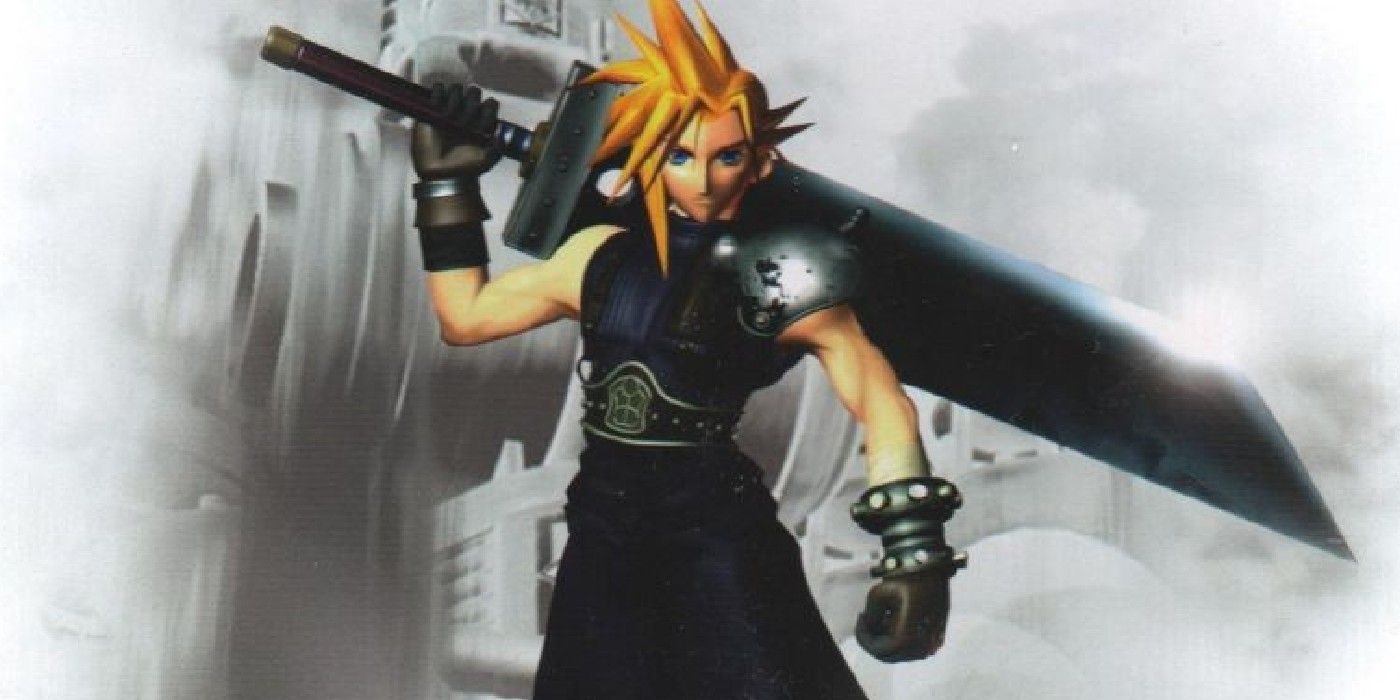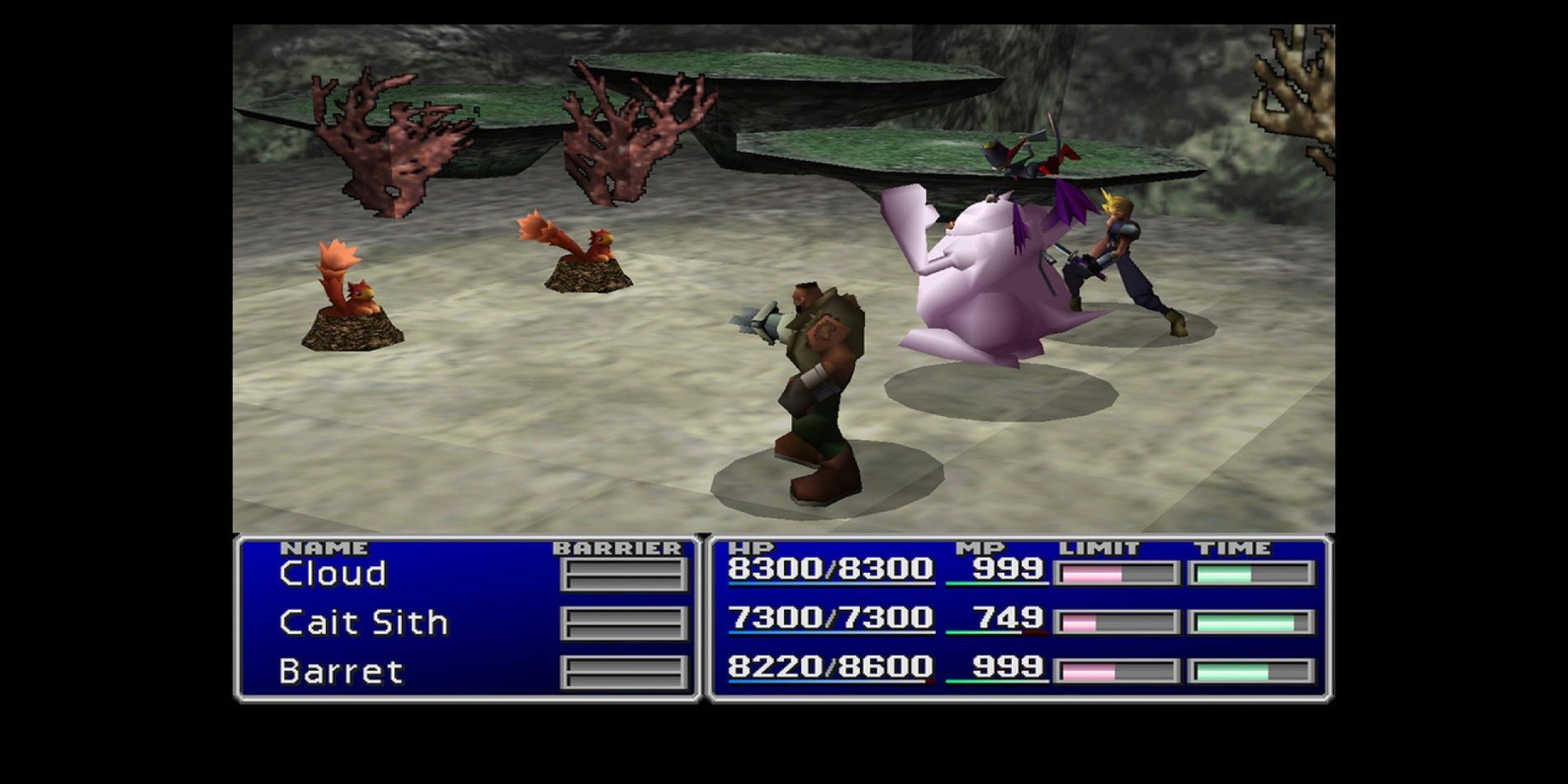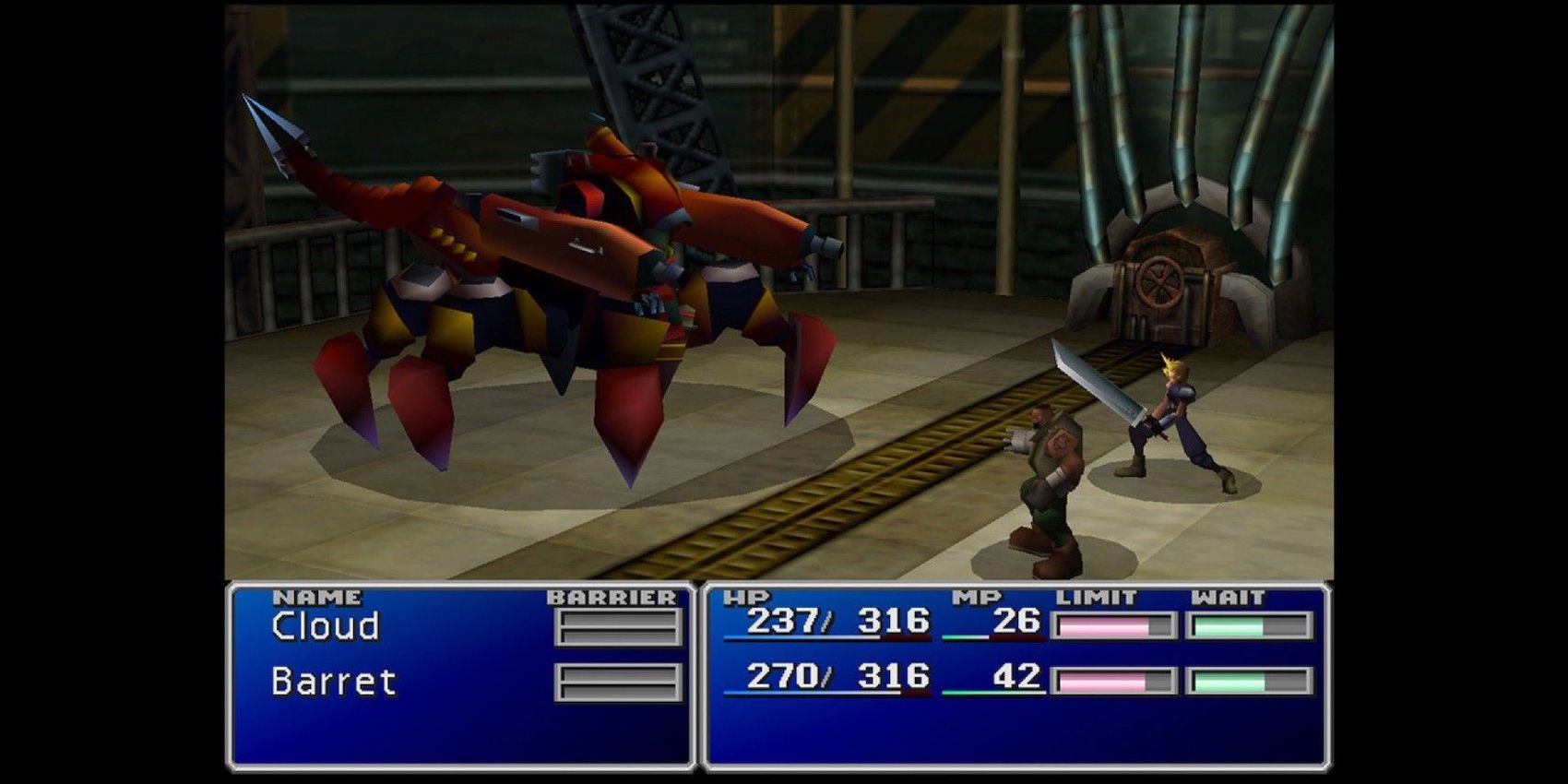Final Fantasy VII is still the most iconic entry in the Square Enix franchise, and it's no surprise that the JRPG has continued to be a huge presence in the world of gaming. This has resulted in a long-awaited remake of the game, albeit one that changed quite a bit of the classic formula. Thus, many newcomers to the franchise now question which iteration they should play.
That question is now even more pertinent with the upcoming Final Fantasy VII Rebirth, the second part of the remake trilogy. With how much this game and its predecessor completely upend what fans already know about Cloud Strife and company, enjoying Final Fantasy VII in its original form is of paramount importance. Here's why playing the original game actually enhances its sequels and the current remake trilogy.
Final Fantasy VII Is the Story as It Was Originally Intended
The biggest reason to play the classic version of Final Fantasy VII is that it's the story's original telling. This sounds like a rather basic way to justify playing a decades-old game, but there's much more to it than it seems. The many sequels and spinoffs of Final Fantasy VII all built upon what was shown in the original PlayStation title and absorbing the world, characters, and story is best done through playing said title. Thus, those who have never experienced the game can confidently go forward with the rest of the subseries, having learned what they need to know about the narrative in order for things to make sense.
Likewise, the storyline of Final Fantasy VII Remake makes the game far more than what its title would suggest. It's most certainly not a true remake, but rather a reimagining that only makes complete sense to those who are familiar with the original's plot. The nuances of these changes are highly dependent on knowledge of the classic iteration of the game, making the so-called remake arguably more of a sequel. Final Fantasy VII Rebirth is set to diverge even further from the original story's timeline. For this reason in particular, the classic Final Fantasy VII simply can't be passed up by those who want to get into the new version.
Final Fantasy VII Retained the Series' Classic Mechanics While Changing Others
Featuring a much more science fiction-based world with elements of cyberpunk, Final Fantasy VII definitely downplayed the fantasy elements compared to its predecessors. Nevertheless, it did retain several concepts that fans had come to know and love about the franchise, one of them being its turn-based battle system. At the time, turn-based RPGs were the overwhelming majority of the genre, though that's certainly not the case anymore. Even Japanese RPGs are largely eschewing this form of combat in favor of faster action-based mechanics, and the remake of Final Fantasy VII and newer games in the franchise are no different.
Many classic RPG fans have bemoaned the death of turn-based combat, with some even seeing Atlus' turn-based Persona franchise as the true successor to Final Fantasy due to it maintaining these mechanics. For fans of older JRPGs, Final Fantasy VII will provide the turn-based combat and old-school storytelling that they remember growing up, even if they didn't play FF VII when it first came out. Again, this goes back to enjoying the game as it was originally envisioned, with the move away from turn-based in the remake definitely feeling like an obvious attempt at modernization.
The graphics may now be quite dated, but these also go a long way in putting across how radical Final Fantasy VII was upon launch. Its graphics and the storytelling it provided were a watershed moment in gaming, and it helped cement the Sony PlayStation as a must-have console. The graphics and designs also stand out quite nicely from the more overtly medieval elements of previous games and RPGs of the era in general. Thankfully, the classic version of the game is widely available, with ports on Steam, Nintendo Switch, Xbox, and PlayStation allowing old fans and newcomers alike to see just what made the game so great -- and then compare it to the remake and sequels it inspired.



